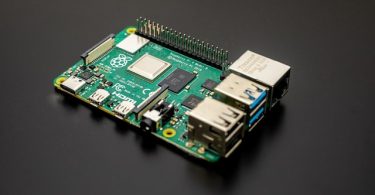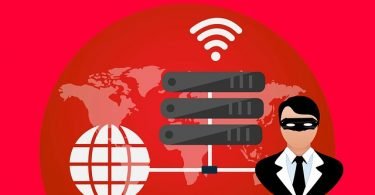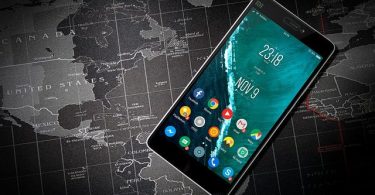The future of cybersecurity becomes increasingly unclear as new technologies emerge. Here are some things that may change cybersecurity for good.
And although it goes without saying that technological advancements have significantly improved the way in which the world functions, we also have to acknowledge that anything comes with risks. The same is true with automation – it can impact cybersecurity, and it’s still unclear if it is positive or negative.
Find here some controversial technological trends that are predicted to have a real impact on cybersecurity.
5G Mobile Technology
5G stands for fifth-generation cellular wireless, a technology meant to take the Internet speed to new heights. You may have heard so much about 5G – did it revolutionize how devices and machines interact with each other? Well… a lot!

https://unsplash.com/photos/0VGG7cqTwCo
The short-range, “high-band” airwaves are one of the most significant advantages of 5G technology. But improved efficiency and high performance are not always the best if we take into account the numerous security warnings. A Help Net Security report shows that more than 60 percent of tech and business decision makers across 12 industry sectors in North America, Europe, and Asia-Pacific are fearful that this technology could intensify their workers’ cyber-attack risk.
It’s believed that the information and signals routed in the Internet of Things (IoT)/5G can result in an MN map (Mobile Network mapping), the ideal opportunity for hackers to steal data and compromise systems. This MN map allows malicious parties to develop maps of devices associated with a network, spot each device, and connect it somewhere else. MitM (Man-in-the-Middle) can become thus more prevalent, as one can hijack data from devices more rapidly with the 5G technology.
Data Breaches Mean a Need to Change Cybersecurity
Data breaches are pretty common nowadays, so whatever the technology, you must be particularly mindful of these cyber threats. In the event of a data breach, it is paramount to take the proper steps. First, do not panic; second, get in touch with a professional lawyer to help with the legal proceedings.
Data breach attorneys can guide you on this legal path and obtain maximum compensation for such cases in the UK. Thus, if you ever have your most valued data stolen, you do not have to take everything on your shoulder because there are professionals who are glad to help.
Quantum Computing
A new computing mode is on the rise, but unlike the classical one based on bits, this relies on qubits. Bits are those tiny switches everything from photographs to web pages and apps is made up of. In other words, our interaction with technology wouldn’t be the same without them or better said, there would be no experience at all. But even if they’re helpful, it has been discovered that this is not how the world works.
It would be sad if things were only on and off, as bits are, so the need for something more flexible is higher than ever. The answer may be in what physicists call qubits, which can be on and off simultaneously but also somewhere between the two. Scientists realized that we are likely to deal with the uncertainty when weirder things occur; that’s why ones and zeros may not be enough. Fortunately, quantum mechanics is full of surprises; that’s how qubits came into existence.
Do We Need to Change Cybersecurity for Quantum Computers?
Quantum computers promise to carry out tasks and move data around more effectively than bit-based computers. Due to this emerging technology, scientists can use AI to perform complex calculations and tackle problems even if the information is uncertain. Besides, it could revolutionize the healthcare industry, leading to discoveries regarding cures for diseases and materials.
Various tests are conducted to bring this innovation into the daylight – 2019 research found that 53 entangled qubits are more efficient in solving a problem that otherwise would have taken thousands of years on a regular computer. It seems quantum computing has a future, all the more so since IBM Research Director Dario Gil told Scientific American that a quantum app store and line of code are in development.
Although this is announced to be a phenomenon, cybersecurity problems are believed to be more prevalent with quantum computing. Encryption, in particular, will suffer, as public keys are easier to crack on quantum machines. However, specialists think about solutions, and QKD (quantum key distribution) may be one of them. It remains to be seen how these security issues will be handled; for now, this technology’s appearance is more awaited than the related risks.
IT-OT Convergence
IT (Information Technology) and OT (Operational Technology) started to cooperate, so more IT- and OT-based technologies are expected in the future. The former is more about hardware, software, computers, or other telecommunication devices used mainly in the business world, and the latter involves proprietary, salesman-specific technologies that carry out actual operations. When these two blend together, more business optimization is expected, but until then, specialists are concerned about cybersecurity issues.
Senior security researcher at Tripwire, Lane Thames, suggests that the safety community should be preoccupied with a new ITOTSecOps methodology that focuses on this IT-OT convergence. Even if these technologies help organizations increase manufacturing output, minimize operational costs, and reduce downtime, they can lead to a lack of control over security policies and visibility. Thus, it can become challenging for the tech team to determine what is spread across their worker’s whole infrastructure (whether we talk about IT and OT spaces or cloud storage).
A possible solution to this problem would be a defence-in-depth tactic with layered security for companies to work on. Plus, greater cooperation between IT and OT teams would be helpful so that the monitoring process can be smoother.
Technologies Used to Combat Cyber Threats
Throughout time, various technologies have proved efficient in the fight against cyber-attacks, and some of the most notable include:
- Zero-trust Model
- Blockchain
- Hardware Authentication
- SIEM (Security Information and Event Management)
- Biometrics
- AI and Machine Learning
More about these technologies that sound perhaps too futuristic in a future post, so stay tuned to catch the insights.
As new technology trends arise, we will need to change cybersecurity, but with such advancements on the horizon, it is hard to believe that solutions to these issues will not be found.

























